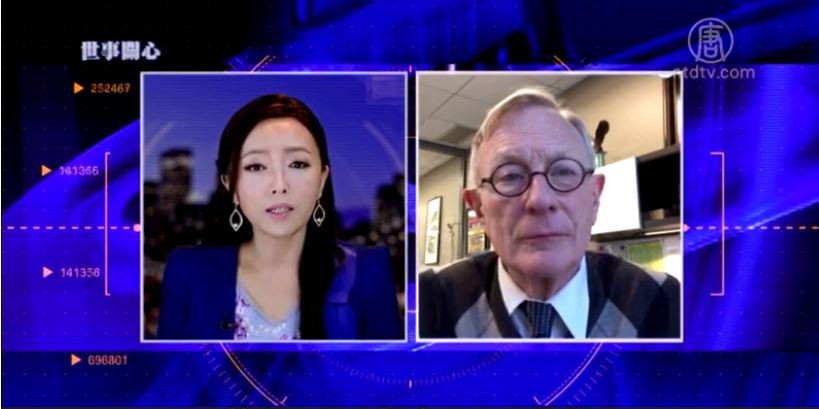
|
January 30, 2018
NTD Interview
|
|
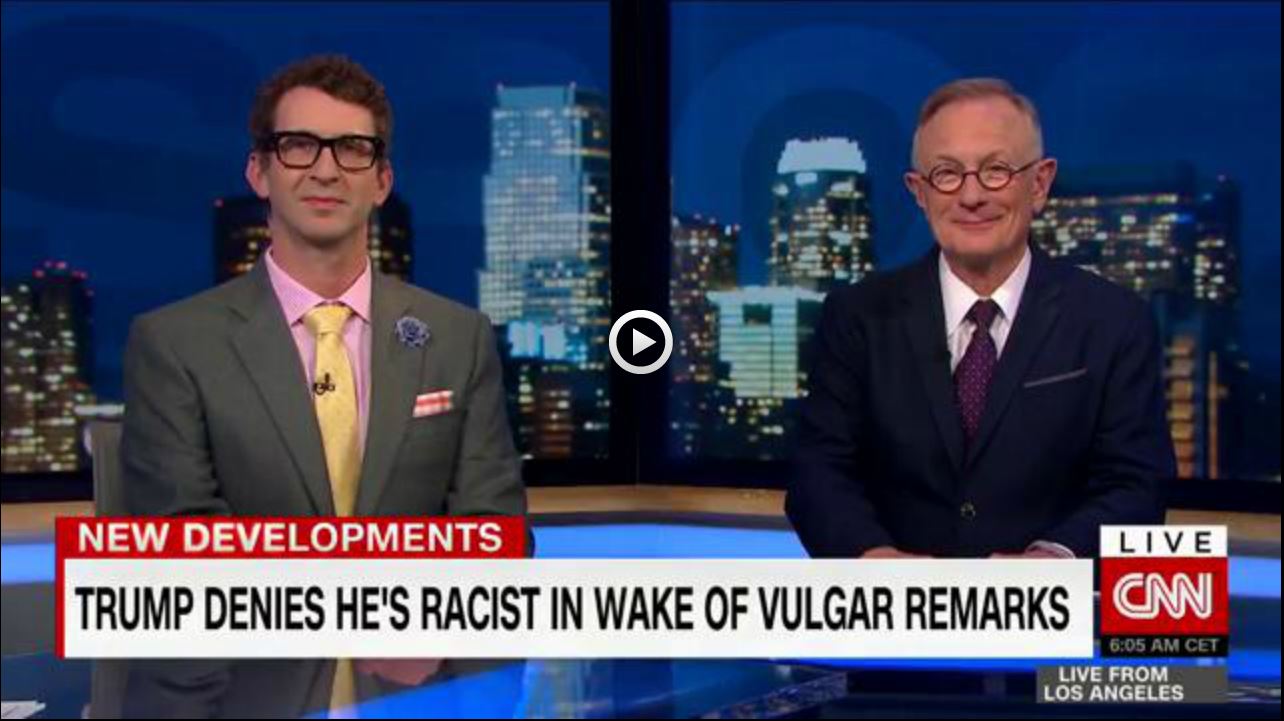
|
January 16, 2018
CNN Interview - Part 1
|

|
January 16, 2018
CNN Interview - Part 2
|
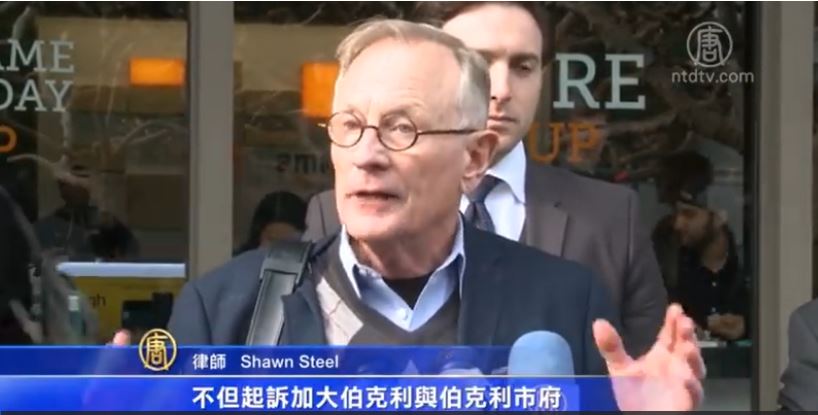
|
January 16, 2018
Press Conference
|
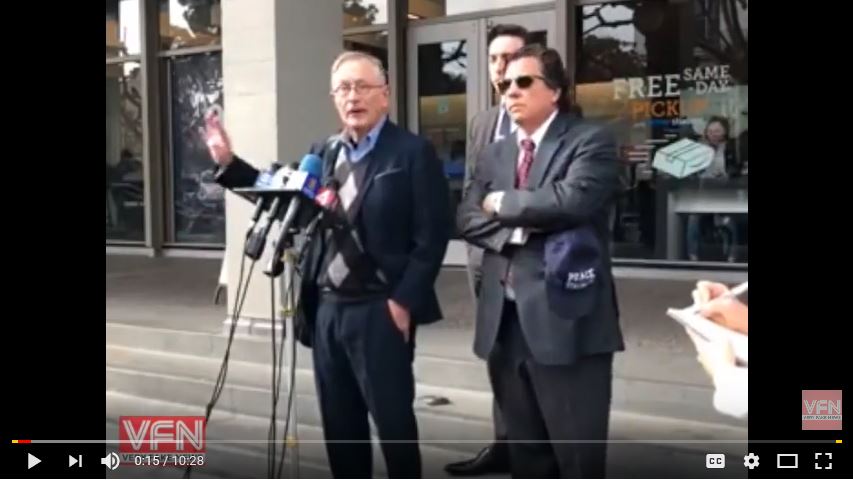
|
January 16, 2018
Press Conference
|
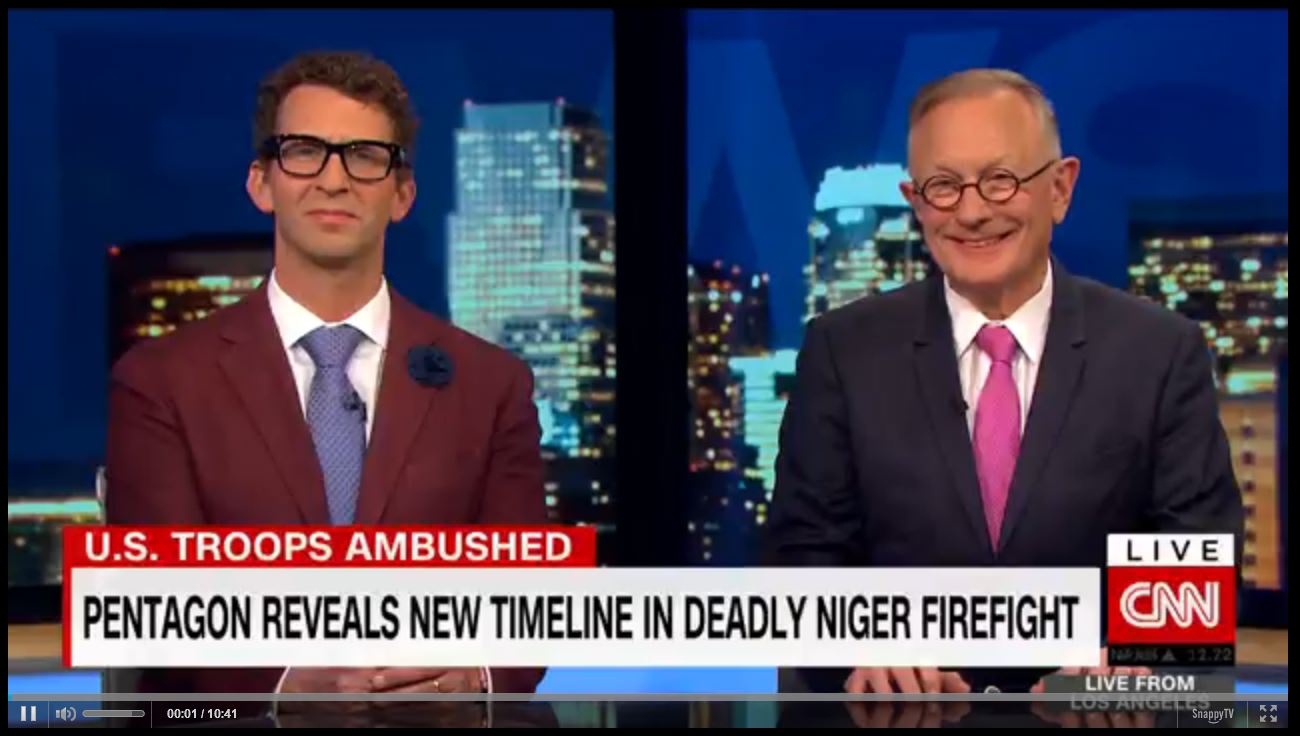
|
October 24, 2017
CNN Interview
|
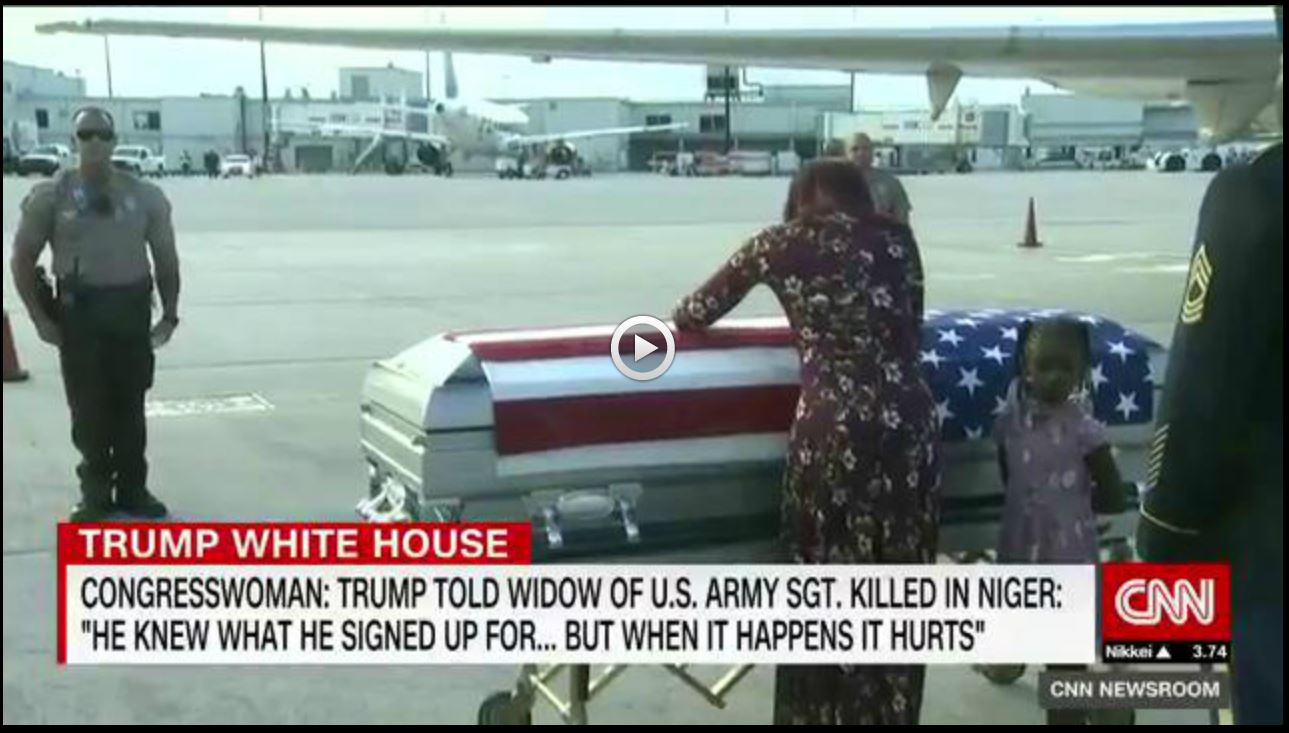
|
October 18, 2017
CNN Interview
|
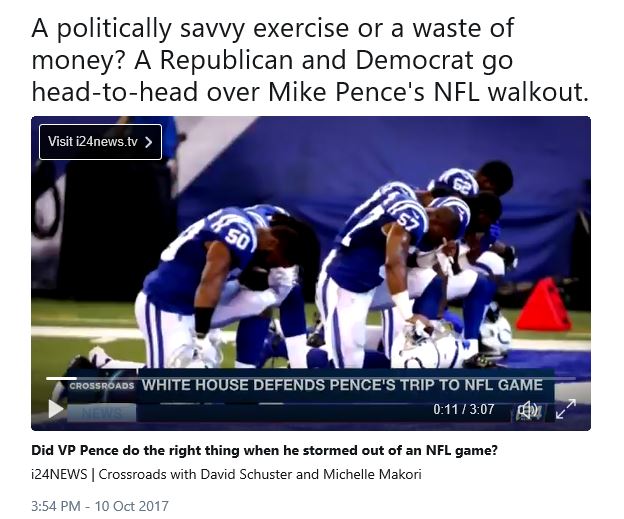
|
October 10, 2017
i24News Interview
|
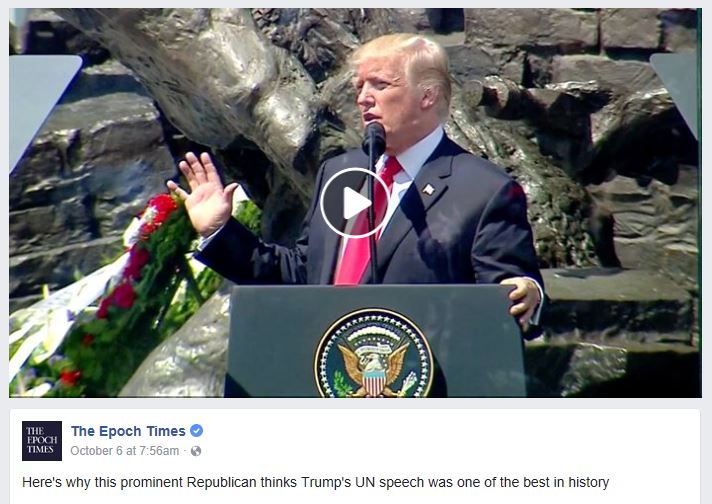
|
October 6, 2017
The Epoch Times Interview
|
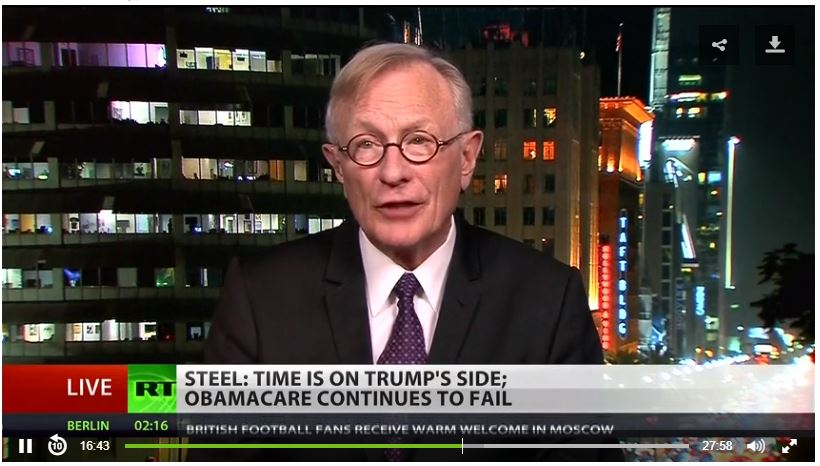
|
September 27, 2017
RT America Interview
|
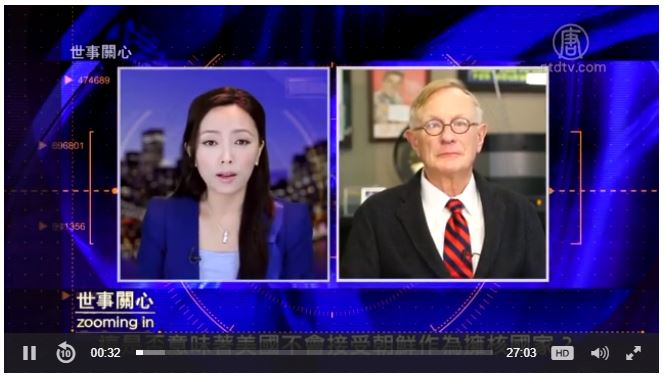
|
September 26, 2017
NTD Interview
|
|
|
|
|
|
|
|

Arnold's Army
October 23, 2003
Was the recall of Gray Davis and the election of Arnold Schwarzenegger a sign of political realignment here in the Golden State? Thirty years in California politics tells me yes, but whether this mini-realignment takes root hinges on what Schwarzenegger does during the next few months.
The members of what Hoover Institution scholar Bill Whalen has dubbed "Arnold's Army" come from every demographic. Arnold won majorities or large pluralities among Republicans and independents, men and woman, Catholic and non-Catholic Christians, moderates and conservatives, whites and Asians, first-time and regular voters, union and non-union voters, and every age group. He captured a respectable 31 percent of Latino voters and 42 percent of union households; if you add in Tom McClintock's votes, those numbers swell to 41 percent and 56 percent percent, respectively. Despite Mr. McClintock's effort the bulk of Arnold's voters were self-identified conservatives.
While antipathy toward Mr. Davis fueled much of this vote, the fact remains a broad cross-section of Californians punched their chads for the Terminator. The tricky part for Arnold is converting this ad hoc coalition into a permanent majority.
Just as soft pottery clay is hardened by being fired in a kiln, Mr. Schwarzenegger can harden the loyalty and solidity of his coalition by: leading them into an all-out battle for his campaign platform: reducing the burden of taxes, regulation and workers compensation costs that are stifling job creation; rescinding the tripling of the car tax and the issuing of drivers licenses to illegal immigrants; and ending the domination of state government by special interests, especially public employee unions and casino tribes.
Some Democratic legislators will work with Mr. Schwarzenegger, inevitably most will fight him tooth and nail. Encouragingly, Arnold has put them on notice he'll respond to such obstructionism with Conan-like ferocity by taking the fight directly to voters via initiative. This will stoke the fire and heat necessary to harden his coalition, and keep the disparate elements of Arnold's Army from turning their swords on each other.
Speaking of internecine warfare, this mini-realignment cannot hold unless Arnold ends the state GOP's intra-party fighting. The conservative and moderate factions of California Republicanism resemble the squabbling Scottish clans in the movie "Braveheart": too busy fighting over their respective claims to the throne to deal with the real enemy. Mr. Schwarzenegger must transcend that fight and unite the GOP clans by focusing them against the common foe: the liberal Democrats and their attendant special interests.
First, Arnold needs to secure his right flank. Conservatives' desire to win was so keen they overlooked his liberal social stances on abortion, gay rights and guns - a significant concession Arnold should return by declining to push those issues. If he does that, and wages a ferocious fight for items of agreement such as lower taxes, Arnold can turn this marriage of convenience into one approximating love. Besides, California can't get much more liberal in terms of abortion, gay rights and gun control, so Mr. Schwarzenegger has little to lose. Arnold can afford to ignore any resulting complaints from moderate Republicans, since they're the ones with no place else to go.
Arnold should a message unity by squashing any moderate attempt to mount a revenge challenge to Mr. McClintock in his Senate primary. Mr. McClintock's candidacy did more than any Republican in years to persuasively articulate the conservative case for fiscal responsibility and pro-growth policies. Actively backing Mr. McClintock's re-election would send a powerful signal to conservatives that Arnold is interested in leading the GOP to dominance - not in leading a moderate jihad against the right.
Finally, Mr. Schwarzenegger absolutely cannot back off his pledge not to raise taxes. Already, the media has struck up the familiar chorus for higher taxes, intimating that all will be forgiven if Arnold will agree to a tax increase to close the budget deficit. Heeding that advice would be tantamount to signing his own political death warrant. Arnold may not have formally signed "The Pledge," but that distinction will be lost on voters if he ditches his promise and agrees to a tax increase. It will sunder his fledgling coalition and shatter his credibility with the voters.
Mr. Schwarzenegger has his work cut out for him, both as governor and politician. By the spring, the consequences of his actions will make it clear whether the broad coalition of Republicans, independents and Democrats who elected him will prove to be a lasting governing majority, or a remarkable but evanescent Election Day phenomenon.

Winners and Losers
October 09, 2003
The historic California recall is now history. The winners and losers of this epic event will surface in the backwash of the recall during the coming weeks, but let us take note of the more obvious winners and losers.
Winners: Obviously, the biggest recall winner is Arnold Schwarzenegger. Arnold seized a once-in-a-lifetime opportunity to bypass a bruising Republican primary and go directly to the voters. At least that was the theory. As it turned out, circumstances forced him to simultaneously wage a primary election (against Tom McClintock) and a general election (against Cruz Bustamante). Celebrity, a massive war chest, a populist rapport with voters and pure will enabled him to transcend media-elite scorn and last-minute dirt to grab the gubernatorial brass ring. Democratic legislators who smugly think they can tie a Gov. Schwarzenegger in knots are in for a rude awakening.
Tom McClintock: He wins even by losing. He avoided being the spoiler who swung the election to Bustamante while advancing his cherished conservative cause by advocating his principles in a direct and dignified manner that earned the respect of voters across the political spectrum. McClintock has consequently amassed invaluable statewide name ID and a huge database of devoted donors, and is beautifully positioned to run for statewide office in three years.
California Republican Party: What a difference a recall makes. The state GOP was prostrate following its wipeout in the November 2002 elections. Although the institutional California Republican Party was slow to back the recall - and, indeed, was initially indifferent or opposed to the recall - it acted as a tonic on the moribund CRP by energizing volunteers and activists like nothing had in years. GOP registration has picked up dramatically, and small donors are once again opening their wallets: During the 48 hours following the 9th U.S. Circuit Court panel's cancellation of the recall, the CRP received more than $2 million in donations.
California voters: Media putdowns about the "recall circus" aside, the recall did more to focus California voters on state issues than any other event in recent history. When was the last time two-thirds of California voters watched any political event, let alone a gubernatorial debate? Everywhere, Californians were talking about the recall and issues like taxes, the budget, immigration, health care mandates and special-interest influence. This can't be anything but good for our civic culture.
Losers: We start with Cruz Bustamante. The lieutenant governor's prospects for higher office weren't stellar to begin with, but his even less stellar campaign demolished those he had. Bustamante may, in reality, be the soul of political moderation, but the recall has indelibly branded him as the condescending, left-wing Mexican nationalist candidate in the pocket of the casino tribes. With much stronger candidates in the wings, Democrats aren't going to give him a second chance at the prize in 2006 after his dismal performance at the top of the ticket.
Casino Indians: It only took a few weeks for the casino tribes to shatter the sympathetic public image they'd cultivated for years. Now the public sees them as just one more powerful, politician-buying special interest throwing its weight around Sacramento - and they'll have to deal with a now-hostile Gov. Arnold.
Puke politics: Never have I seen a political candidate endure such an intense, protracted sliming as Arnold Schwarzenegger has these last few weeks - and still emerge the winner on Election Day. Perhaps we have witnessed the high-water mark of the "puke politics" perfected by Gray Davis, and the beginning of a less polluted political atmosphere.
The Los Angeles Times: The Thursday-before-the-election groping story wasn't just a stink bomb - it was a nuclear warhead. The Terminator took a direct hit and kept right on going, while it was the Times that suffered collateral damage from the blowback. More than 1,000 subscribers called to cancel, and you can be sure the Times has lost credibility with many times that number. When the L.A. Times' biased coverage becomes a national news story, you know there's something rotten at Times Mirror Square.
And where is Gray Davis on this list? For the sake of space, he's been recalled.

The Conservative Question
September 19, 2003
Conservatives are in a quandary about who to support for the Recall replacement. When I helped initiate the Recall, my first priority then, in January and today, is the transfer of power from the failed leadership of liberal Democrats. Anything that interferes with that goal must be carefully examined. So, we are all faced with a critical question: Who? Yesterday, I answered that question in an email conversation with a young lady, Melody Holmberg - a college Republican leader and a movement conservative.
Dear Shawn,
As your political child, I have a quick question, why are you supporting Arnold over Tom? Besides the common answer of "Tom Can't win."
If everyone agrees that Tom is the right man for the job, then why doesn't everyone support him? I don't know, I guess I am too naive, idealistic, and believe that you should vote for who is qualified for the job not for who everyone thinks everyone else is going to vote for. I was just curious and would like you to clarify things for me.
Thanks,
Melody Holmberg
Melody:
You ask The Important political question.
Having invested 7 months of my life for the Recall, I can tell you with certainty, it's not about Tom. The larger purpose is the change of governance. The objective is to remove Davis. I would have hoped that there would be more than one prominent Dem running to replace Davis. Fortune turns out to give voters only one major Democrat, Bustamante. And he leads. Not surprising given demographics and Dem registration. But the election outcome is of such severe consequences that all assumptions must be reexamined and tested.
In a final analysis, whichever leading Republican has the best chance to Prevent Bustamante from winning, requires a Grand Consolidation. I am joined by Dana Rohrabacher, Ray Haynes, Ed Royce, Chris Cox, John McGraw - all hard scrubbed conservatives. The Governorship is too powerful, too important to allow continued irresponsible Democrat control.
More. I do not call for Tom to drop out. We need him to campaign, stimulate voters, teach Arnold, and keep the debate on the economics. But as Tom himself said to the Washington Post this past Saturday if he is behind Arnold in the teens, his "supporters will do the right thing." For that 'release' Tom shows he shares the big picture. And Tom remains a true hero.
Shawn Steel
Co-Founder Davis Recall

Governor Croupier
September 12, 2003
I hope I'm not the only Californian dismayed at cascade of cash the casino Indian tribes are pumping into Cruz Bustamante's recall candidacy. As it stands, California's single most powerful special interest group has furnished 60% of Bustamante's campaign funds. If Bustamante wins the replacement election, we will not only have a new governor - the casino tribes will have installed their own pit boss in the governor's mansion.
Does any reasonable person think a Governor Bustamante will be able to "take on" - as the Lieutenant Governor is fond of saying -- the powerful casino tribes who put him there? The casino tribes never lose in the Legislature - now they will add the governor's office to their list of politically sacred sites in Sacramento.
Don't get me wrong. I'm a friend of Indian gaming. Native Americans suffered long enough, and I have nothing but admiration for tribes that have leveraged gaming to lift their society out of poverty and neglect.
At the same, do we really want a governor so mightily beholden to a single interest group, particularly one interested in not only protecting reservation gaming, but expanding it onto urban neighborhoods and claiming unwarranted influence over the property rights of those in the vicinity of tribal lands?
Bustamante, after all, is not exactly a rock of political courage. His reputation in Sacramento is of a politician who loves to posture and pose, but is terribly indecisive when it comes to making tough political decisions -- not the kind of person to lead the state out of an unprecedented crisis.
Unfortunately for Californians, vacillation isn't the only flaw in the man who could be our next governor.
Science may not know it is possible to travel back in time, but Cruz Bustamante - judging from his recent policy pronouncements - is sure trying to take California back to the 1970s. Government regulation of gasoline prices -- wasn't that totally discredited more than 20 years ago? Or does Cruz harbor fond memories of shortages and gas lines?
It is increasingly apparent that Bustamante's political thinking is firmly rooted in the 1970's, when you could still find intelligent people who actually thought high taxes, heavy regulation and government direction of the economy was the key to economic growth and opportunity. He still has a hard time separating from his MEChA affiliation. At a time when businesses our leaving the state, our lieutenant governor thinks it is a good idea to force any business with more than 20 employees to provide health insurance for their employees. As he admitted in Wednesday's debate, he thinks it is fine for government to force employers to serve as welfare state auxiliaries.
Which brings me back to my original point. Bustamante makes no bones that massive financial support from the tribes and the unions are, in his words, "leveling the playing field" for him. Let us make no mistake, then, that a Governor Bustamante would serve shop steward-in-chief for the unions, just as he would function as the tribes pit boss in state government. The lieutenant governor is already telegraphing his intentions during Wednesday's debate. Characterizing the tribes' millions in campaign contributions as their way of showing "respect", he stated he would respond to trine attempts to expand gambling to reciprocating that "respect...and try to work out arrangements." The ravenous demands by public employee unions for continued helpings of taxpayer dollars would be met with similar "respect" from a Governor Bustamante.
Gray Davis will be recalled. Not even a guest shot on Queer Eye for the Straight Guy could make Davis likeable and appealing. The grave danger to California's future is the distinct possibility he may be replaced by a man who is even more beholden to special interests, will tilt state government even further leftward, and who - judging by his flouting of campaign finance laws - shares Davis' weakness for sacrificing ethics and principle to expediency and political advantage.
This is what got California into the mess it is in. I only hope the Republican candidates agree to put their own ambitions aside. This is a two person race. We know that one of the two is Cruz. The other candidate needs to gather the majority of the Anti Davis/Bustamante coalition. That coalescing needs to take place real quick. Or we will see the Davis/Bustamante hegemony extended until 2010. By that time there will little left to gamble for.

Recall Choice Really Between Tom, Bill, Arnold
August 13, 2003
The wild but wonderful recall phenomenon has acquired its near-final form. The Oct. 7 ballot will feature scores, if not hundreds, of Californians vying for the highest office in the state.
OK, that's not really true.
Only a handful of those candidates will impact the vote, and only a few of that handful actually stand a chance of winning. The choice really comes down to three candidates: Tom McClintock, Arnold Schwarzenegger and Bill Simon.
For some, the choice will be a no-brainer; for many others, regardless of their ideological bent, that decision is more complicated. I understand this feeling completely, and have devised a checklist of sorts I believe will guide the recall proponents to the strongest candidate.
The populists who created the recall would lose any chance of restructuring state government if Lt. Gov. Cruz Bustamante were to eke out a victory. Bustamante is supported by the same special interests as Davis, special interests that have terrorized our economy and obstructed reform movements.
Because Bustamante is on the ballot, the electability of one of the top three Republicans should be our foremost consideration. After all, the point of this recall is replacing Davis with a reform governor who will push goals of economic growth through lower taxes, less spending, business-friendly rules and real workers' compensation reform.
The winning candidate must have voter appeal that bleeds across party lines.
The winner this fall will need to adopt Ronald Reagan's skills in communication, voter empathy and visionary leadership.
An attractive persona fused as a brilliant communicator is another key factor. The recall's compressed time frame gives voters much less time to get to know the candidates. The nature of this election favors the candidate best able to quickly forge a genuine connection with voters.
The voters who created the recall must believe the candidate sincerely comprehends the massive outflow of fellow Californians fleeing our state for a better living environment. The candidate must understand what it will take to encourage the middle class to stay and help rebuild.
Even after Davis is recalled, the heavily liberal Democratic Legislature will remain. Therefore, voters must consider which of the top candidates commands the necessary charisma, craftiness, clarity of purpose and force of will to push the Legislature in a new direction.
Should the recall succeed, the new governor's most urgent task is restoration of the state's economy. If we elect a governor lacking the political and communication skills to leverage sufficient Democratic votes -- or absent that, the willingness to obtain reforms directly from the people via initiative -- California's economic train wreck will continue, albeit with a new politician driving the train.
Visionary leadership is crucial for which candidate is most able -- and willing -- to assemble a cabinet of economic-growth specialists. Davis proved that simple-minded "experience" can be the most harmful formula for running the state. Ronald Reagan and George W. Bush have demonstrated the value of a visionary leadership surrounded by able, supply-side economists who are committed to economic expansion. Campaign resources are key.
Obviously, no one is going to cast a vote based on the size of a candidate's campaign treasury. At the same time, the replacement with the best chance of winning the election is the one with a war chest sufficient for communicating with voters as often as needed during the next two months. The ideal candidate who can raise the millions necessary -- or who is willing to spend millions from his own personal fortune -- stands the best chance of winning.
Finally, we need a governor willing to invest significant effort and resources into rebuilding his party and sweeping Sacramento clean by electing pro-business legislators.
The recall movement itself has invigorated a demoralized citizenry. Just months ago, most people felt powerless. Recent polls show that 82 percent of Californians believe the state is headed in the wrong direction. A recall victory must mark the beginning of a political renaissance, or else our efforts will be mostly in vain.
The winner will be the man who understands the roots of the rebellion and can lead the charge against those who brought our state to its economic knees.

Who CAIRs?
June 19, 2003
CORRECTION: Shawn Steel made a factual error in this piece. Hussam Ayloush, executive director of the southern California chapter of the Council on American-Islamic Relations, did not co-host the May 1998 event as described in the piece. A primary task of any political-party chairman is to recruit new leaders from new communities into the party. This is particularly true in California, where I recently ended a two-year term as chairman of the California Republican party. During that time, I directly sponsored more minority clubs for formal chartering than any prior chair. I made a special point of outreaching to Arab and Muslim Americans. I personally encouraged a considerable number of Muslims to assume active leadership in the California Republican party. I had the first Muslim prayer given at our state-party convention, appointed Muslims to important party positions, and encouraged the chartering of Arab and Muslim Republican clubs. I strongly believe Muslims who are first-generation Americans are natural Republican allies. Devotion to intact families, strong religious beliefs, commitment to educational excellence, and a self-reliant ethos that inspires entrepreneurial success — are all values shared by most Muslims and Republicans. In light of my pro-Muslim track record, readers will share my astonishment at the vicious firestorm of abuse that has been directed at me personally following a widely made observation about contemporary Islam. A few weeks ago, I was invited by the University of Southern California chapter of the College Republicans to speak at a “support our troops” rally,” at which I applauded the success of our troops, the president’s vision, and the liberation for the Iraqi people. So far so good. Then, I went on to say “The Islamic community has a cancer growing within it, which hates Jews, hates freedom, and hates Western society…the disease within Islam must be rectified” — some something as obvious as it is politically incorrect. A huge outcry followed — one compounded by the subsequent article in the Daily Trojan (USC’s student newspaper) that misquoted me as stating “The disease OF Islam must be rectified” (emphasis added) — transmitting my comment into an excoriation of the world’s second largest religion as a “disease.” The newly installed editor has since printed a retraction. Out of nowhere, I now find myself subject of a national protest campaign organized by a group called Council on American-Islamic Relations (CAIR). For example, CAIR described several incidents by different Republican and conservative organizations of actions against Islam. They described my misquoted statements as “anti-Muslim bigotry spewed by a minority of hate-mongers….” In politics I have been called many names but “hate monger” is a new one. CAIR recommended to its e-mail list to have me repudiated by the California Republican party, for a statement I did not make. YOU’VE GOT HATE MAIL My in-box is being jammed with literally hundreds of unsolicited e-mails generated by CAIR and copied to various California Republican leaders, demanding I apologize for a comment I never made. CAIR is also hounding the state GOP to disown me. O.K., I can understand why an organization like CAIR would be upset — if I had actually castigated Islam as diseased. But I did not. I reminded the Daily Trojan of that fact, and demanded a correction. I informed CAIR they were responding to a misquote and asked them to call off their troops — to no avail. Being misquoted is a predictable side effect of leftist journalism. I’ve been punching and getting punched for years, which I expect in the course of honest political debate. What I didn’t expect was the depth of hatred and alienation from so many American Muslims. Of the hundreds of messages I’ve received as a result of this CAIR-organized e-mail bombardment, not one has contained a good word for the president. None expressed any support for our troops or for the liberation of their fellow Muslims in Iraq from the tyrannical yoke of radical secularist Saddam Hussein. The incessant refrain was I was hateful for warning against a poisoned element of contemporary Islam, or simply spiteful broadsides against Israel. A review of a few of the responses I received was quite an education for me; I have not included the senders e-mail addresses or names out of respect for their privacy:

People Must Demand Recall
May 29, 2003
At the beginning of the 20th century, a progressive revolt added the rights of initiative, referendum and recall to the state constitution in order to give citizens recourse against the powerful special-interest groups that had made state government their handmaiden.
As we begin the 21st century, we again find ourselves faced with corruption, incompetence and the paramountcy of special-interest influence, this time centered in a single individual: Gov. Gray Davis. His continuously scandal-plagued, calamitous administration has brought our state to the brink of disaster, and it's time to take those tools of democratic accountability in hand and recall Davis.
Recalls have been threatened before, but in my decades of political involvement never has one caught fire like the current effort to recall Davis.
In the last few weeks, a broad-based, ad hoc coalition of activists, public-policy groups, business people and ordinary citizens has begun to coalesce around this effort, ranging from the anti-tax group People's Advocate on the right to Pat Caddell on the left.
It reflects a disgust and disaffection with Davis that transcends partisan affiliation, age, gender, race or ethnicity. Californians understand we would not be in these perilous straits if Davis possessed a modicum of foresight and the basic sense of duty and honor to place the best interests of state residents before his immediate political imperatives.
Californians are paying for Davis' ostrichlike refusal to deal with uncomfortable realities such as high electricity rates; a budget meltdown that will result in higher taxes on working families and businesses; reduced public assistance for the aged, blind and disabled; and deteriorating health care for children, the poor and the vulnerable.
Davis' failed leadership means fewer opportunities and greater hardship for all Californians. In a hundred ways large and small, he has proved himself unworthy of our trust and his office.
This recall campaign is not about replacing a Democratic governor with a Republican one. It is about throwing out the most incompetent and corrupt governor in state history. Voters will be able to choose Davis' successor from a range of candidates. If they want another Democrat in the governorship, they can elect one. If they want a Republican instead, they can have that, too - or an independent, a Libertarian, a Green or whomever.
Critics of the recall could give lessons to the French in hand-wringing and rationalizations, trotting out several phony arguments for opposing it. They claim it is inappropriate because Davis was re-elected, however anemically, just last November.
To which I respond: so what? That is exactly why we have the recall - so citizens don't have to wait until the next election to remove an elected official. According to the state constitution, "All political power is inherent in the people. Government is instituted for their protection, security, and benefit, and they have the right to alter or reform it when the public good may require."
Before his re-election, Davis brazenly lied about the magnitude of the state deficit. He pays hundreds of former campaign aides who are working for various state agencies. He has admitted that he hid vital budgetary devices, which means that the dismal plurality that re-elected him was deceived about the true scope of Davis' incompetence. This recall is an opportunity for voters to act on this new knowledge.
The state's constitution gives the people the right to recall their elected officials whenever it suits them, provided enough voters - in this case, 898,000 - sign a recall petition. There has not been a more opportune or necessary moment during which to exercise that constitutional right than now.
Critics claim the recall is wasteful and pointless. On the contrary - it is neither. It is driven by the freely donated time of volunteers and the freely donated dollars of contributors. And if 898,000 voters decide otherwise by signing the recall petition, then the people have the right to decide that question for themselves.
Davis fears it because he knows Californians won't pass up another opportunity to replace him with a man or woman of honor and ability.
Despite the state constitution's assertion that "sufficiency of reason [for a recall] is not reviewable," the Los Angeles Daily News claims that recalls should be reserved for massive corruption and incompetence and states that while Davis is corrupt and incompetent, this doesn't merit a recall.
How corrupt and incompetent must one be? Must state government go completely bankrupt? Must Davis openly admit that campaign contributions guide his policy decisions?
In light of the damage Davis has done during a single term, can we afford to wait out a second term? The Libertarian Party seems to think not. Recently they became the first political party formally to endorse the recall. The Republicans made it official just days ago, and the Greens probably are not far behind.
Our present crisis requires true leadership and moral fortitude - qualities Davis will not suddenly and magically acquire. The right of recall exists for a reason. Let us not shrink from using it.

Golden Possibilities
January 15, 2003
In the aftermath of the historic November elections, Republicans around the country are scratching their heads and asking, “What is up with California?” They’re not alone. Speaking as a California Republican, it’s disconcerting to watch your home state act as a seawall repelling the national Republican tide and handing the Democrats complete domination of state government. It’s easy to blame the defeat on unfriendly demographic changes, an alleged tectonic shift to the left, and the Democrats’ overwhelming superiority in money and organization (actually, the last has a lot to do with it). If it were as simple as that the Democratic ticket should have won in a landslide, not by the narrow margins they actually received. Only Attorney General Bill Lockyer was able to break 50 percent. It’s one thing for the intensely unpopular Gray Davis to eke out reelection with just 47 percent of the vote. But for all other Democratic statewide candidates — lacking Davis’s baggage — to be elected by similarly anemic percentages indicates Democratic dominance is a mile wide and an inch deep. In fact, Republicans picked up two seats in the state assembly and a state-senate seat that had been redistricted to elect Democrats. The defeat of the statewide ticket here was largely man-made. No one worked harder or had a better message than Bill Simon. Merely citing Bill Simon’s inexperience and his chaotic, mistake-prone campaign staff only goes so far. Attention needs to be paid to the man-behind-the-curtains: Gerald L. Parsky. Parsky is a liberal, ultra-wealthy Los Angeles investor. He’s also President Bush’s self-appointed man in California, a sort of White House California viceroy. He holds no formal title or party office and few Republicans know his name, but he is unarguably the single-most-powerful Republican in the state. He has the last word in federal judicial appointments in California, and harbors aspirations to be treasury secretary. Seeds of the Election Day disaster were planted a year ago, when Parsky muscled through a restructuring of the state party that transferred executive authority from the elected chairman to an unelected operations committee controlled by himself — effectively severing ultimate control of the party from grassroots activists and giving it to a small oligarchy. As party chairman, I voluntarily assented to the experiment on the strength of promises by Parsky that he would, in exchange, leverage his close relationship with the White House to raise at least $10 million for the party’s political plan. Lacking a Republican governor or U.S. senator, California Republicans desperately need the help of a Republican White House to raise the huge sums necessary to be competitive in the fall election. Thus began a string of broken promises and blockheaded decisions that significantly contributed to our losses this November. Parsky bestirred himself to raise only $3.5 million of the $10 million he originally pledged. The relative ease with which he accomplished that — that money was raised with just three fundraising events — left many party leaders wondering why he chose not to raise the additional millions that would have made the difference in some close races. The promised stream of Cabinet officers and other high administration officials to raise funds proved to be less than a trickle. While Parsky did bring in Vice President Dick Cheney to headline two of his three fundraising events, and Karl Rove and Jack Oliver touched down for brief donor tour, Parsky was curiously unable to include a single fundraising opportunity on the itineraries of more than 100 visits to California by Cabinet officials during the last year. At the same time, Parsky — who controlled party finances and expenditures — starved state-party operations, hoarding revenues in separate campaign accounts and refusing to fund vital campaign efforts until very late — too late — in the game. This indifference and mismanagement bled into the Simon campaign. Parsky threatened to block funds for Simon’s candidacy unless his campaign was put in the hands of Rob Lapsley — a long-time operative who had been in charge of Secretary of State Bill Jones’s abysmal gubernatorial primary campaign. Lapsley was behind shifting the line of attack away from Davis’s greatest weakness — his bungling of the energy crisis — to his ethics. Simon campaign strategist Sal Russo claims that this was done, against his own advice, at the behest of “donors” (read Parsky) by means of more financial blackmail. Russo also says that TV spots targeting Davis’s gubernatorial record were produced — ads that actually moved voter opinion — but unfortunately were spiked by the same “donors.” Ignoring wiser counsel, Lapsley rashly decided to release the famous photo purporting to show Davis illegally accepting a contribution in a state office. Instead, the photo turned out to be in a private home and was perfectly legal. He didn’t even bother to verify the circumstances of the photo until after it was released. The ensuing uproar deprived Simon of credibility and the momentum needed to pull ahead in the home stretch. Although Simon needed all the help he could get, Parsky advised Bush to stay away from California during the cross-country barnstorming that did so much to power the Republican recapture of Senate. As Ken Khachigian noted in the Wall Street Journal, “The president’s last political visit to California was in August, so Mr. Davis was sheltered from the withering backwash of Air Force One and those high octane rallies which pulled so many other Republicans across the line.” Tom McClintock, the conservative state senator who was the nominee for controller, was also a victim of Parsky. McClintock, a popular conservative thinker and leader, led in all the polls and had the best chance of any Republican to win a statewide office. The RNC had sent Parsky $600,000 to help the down-ticket candidates. Even though McClintock was fighting for his life against a multimillionaire Democratic opponent who was pounding him on TV, Parsky passed him a paltry $100,000 and sent the remainder to moderate candidates with much-dimmer prospects of winning. It’s worth noting that McClintock — easily the most-conservative member of the statewide ticket — received more votes than any other GOP statewide candidate, ultimately losing by only 22,000 votes out of almost 6.5 million cast. In addition to hamstringing ideologically incorrect Republicans, Parsky ignored urgent advice to counter the Democrats’ aggressive voter-registration drive. California voters are 44 percent Democrat and 35 percent Republican, with 15 percent declining to state their affiliation — the narrowest gap in years. Significantly more funding could have gone towards a vigorous, end-of-cycle registration program to further shrink the gap and make GOP candidates that much more competitive. Unfortunately, Parsky rejected the additional funding needed. These actions had real-world impact. The Democrats credit their win in the 18th Congressional District (Gary Condit’s old seat) to a net gain of 25,000 new Democrats (vs. 4,000 for the Republicans) during the last four months of the campaign, after Republicans had reduced the Democratic lead earlier in the year from a gap of 17 percent district to seven percent. We cannot undo the bungling, but we can at least learn from it so it isn’t repeated in 2004 and 2006. So, what is to be done?
WINNING STRATEGIES
— First, since the president stands an excellent chance of winning California’s 55 electoral votes two years hence, Gerry Parsky ought to rethink his role as Republican strategist-in-chief for California. Consider his track record: In 2000, as then-Governor Bush’s campaign chief in California, with $24 million to spend, he brought Bush into the state for four time-wasting visits in the closing days of the presidential campaign, only to lose by 1.3 million votes. That strategy cost Bush time and money in four states he lost by less than one percent — Oregon, New Mexico, Iowa, and Wisconsin — and caused the grueling post-election electoral stalemate. — Second, accountability must be restored in the state party. Presently, the operations committee serves as a mystery body, where no one receives credit or blame. Since my term next month, such action has no bearing on me. But if the party is to attract dynamic chairman candidates, the position ought to be worth having. — Third, and most important: In the long run, California Republicans must adopt a dramatically different approach to winning elections. Democrats enjoy a perennial advantage in their ability to deploy a veritable army of thousands of paid workers at every election. Republicans have to match that effort if we are to prevail in the future. This isn’t a pipedream. Republican National Committee research on the 1998 and 2000 elections revealed that the Democrats consistently exceeded pre-election surveys by four or more points due to massive GOTV efforts in the last three days of the campaign. The RNC rolled out a “72-hour Plan” program in 31 states this year in an effort to duplicate that result — with great success. This ground-attack effort was a central factor in the GOP’s stunning November success in Georgia — which for years had stubbornly resisted the GOP tide in the south — where Rep. Saxby Chambliss defeated Democrat senator Max Cleland, Sonny Perdue beat Democratic governor Roy Barnes, and the GOP took over the state legislature. The defeat of Barnes, an up-and-coming political leader often mentioned as a vice presidential pick for 2004, is widely considered the upset of the year. Ralph Reed, Georgia’s GOP state chairman, broke all the barriers and fielded 3,000 paid and volunteer canvassers, bringing about a landmark political change. The approach is straightforward: Recruit thousands of college students during the summer to work weekends until Election Day. Their jobs would be to talk to the 25 percent of Republican who are not regular voters, work with conservative independents, encourage absentee balloting, and push reluctant Republicans to the polls on Election Day. It’s not astrophysics; it’s working the precincts and doing politics — something Republicans should know something about. The RNC paid to dispatch hundreds of workers to targeted states to assist in the final push. The entire effort was costly, but paid off in terms of more personal voter contact. Last March, I proposed a similar program of 10,000 paid and volunteer workers to fan out across the state: knocking on doors, registering voters, getting supporters to the polls, and generally whipping up excitement for the ticket on the ground. It would have been expensive, but we would have been well positioned to exploit a favorable turnout scenario and gained an extra three-five points on Election Day — sufficient to have pushed several of our statewide candidates over the top. Unfortunately, Mr. Parsky refused to fund it. Perhaps the evident success of the RNC’s 72-hour plan will change some minds. For those who think California is simply hopeless for Republicans no matter what they do, take a look at this map. It compares how the state’s 58 counties voted in 1998, the year of Davis’s landslide election, and this year when he limped to reelection. Davis counties are colored (appropriately) green, while counties that went Republican are colored (also appropriately) red. The difference is striking. The 1998 map boasts a thick green belt of counties encompassing the coast, the Bay Area and all of southern California except Orange County — the 34 counties won by Davis. The 2002 map, however, is a sea of red, with Davis reduced to 18 counties — basically Los Angeles, the Bay Area, and the northern coastal tier. Despite a gubernatorial nominee whose campaign never got off the ground, Republicans recaptured a lot of territory. If the party can restore its vigor, replicate the success of the ground attacks like Georgia’s, and capitalize on the president’s popularity, I am optimistic George W. Bush will win the state’s electoral jackpot and Barbara Boxer will be sent back to Marin County where she belongs.
|
Articles
2025
2024
2023
2022
2021
2020
2019
2018
2017
2016
2015
2014
2013
2012
2011
2010
2009
2008
2007
2006
2005
2004
2003
2002
2000
1998
1996
|